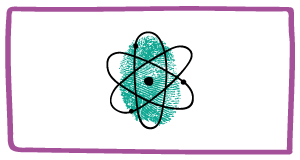UAE embraces emerging technologies in education
In smart classrooms, blackboards make room for digital screens and student participation through tablets.
From artificial intelligence to e-books and robotics, the United Arab Emirates is revamping its educational system to include an array of emerging technologies. With the Fourth Industrial Revolution increasingly shaping the world, educators are adapting their programmes to ensure children are equipped for tomorrow’s jobs.
“Technology is a part of our daily life, just like electricity, food or water,” said Fadi Aloul, head of the computer science and engineering department at the American University of Sharjah (AUS).
“Using it is no longer an option, it’s a mandate in every sector, whether education, health, utilities or transportation. The goal is to make our life better, more efficient and easier.”
The UAE has strongly focused on technology in education in the past year, including initiating an Innovation Hub by Oracle in Dubai, which allows students to pitch ideas in the hopes of developing technological breakthroughs.
“Technology can play a significant role in making it easier for students to get the content and apply it in practice,” Aloul said. “Universities and schools are moving from papers, books and pencils to electronic-books, files and material, with multiple chapters from different authors in one location.”
In smart classrooms, blackboards make room for digital screens and student participation through tablets. “In this digital age, young generations born with those digital devices, have less concentration,” he added. “Technology solves this problem — a disruptive change is happening in education today.”
AUS has subscribed to Lynda, an online education company that offers video courses by experts in software and business skills. “If you don’t keep up, you’ll miss the train,” Aloul said. “The competition is fierce and students will always opt for technology in today’s mindset.”
Artificial intelligence (AI), blockchain and robotics are paving the way for the UAE to become a pioneer in local innovations. “Preparing UAE classrooms with cutting-edge technology today ensures that future challenges are met early on in students’ understanding of innovation life cycles,” said Matthew Cochran, co-founder and CEO of URS Labs in the UAE.
“Supporting students as early as elementary school on robotics and computer technology is vital.”
He said the UAE leadership has leveraged alliances among government, academia and industry to facilitate innovation and technology into important steps for future capabilities “enabled” today.
“‘Made in the UAE’ is a brand people will find equals great value and a competitive advantage than the current marketplace is providing today,” Cochran said. “So [we will be] watching young UAE students turn into the next Tesla or Apple inventor of a major company, all created and based in the UAE.”
However, time is pressing. Research by the World Economic Forum (WEF) indicated that more than 61 million jobs have been lost since 2008 and more than 200 million people are unemployed globally. Youth unemployment rates are nearly three times higher than the rest of the population, while nearly 500 million jobs will need to be created by 2020.
Almost 90% of job creation will need to take place in the developing world, primarily in Africa and Asia. That demands educators and employers working together to adapt education accordingly.
It is estimated that 85% of today’s jobs will not exist by 2030. Technologies that are said to shape the near future are connected to big data, cloud computing, mobile solutions, the Internet of Things and cognitive computing.
“We don’t know what the future jobs will be,” said Darya Yegorina, founder and CEO of CleverBooks, in Ireland, which uses augmented reality in education, “but we can focus on helping children to get ready for jobs and secure their future.”
The WEF’s research focused on specific skills that can be identified in 2020. The difference, compared to 2015, is massive. Many of them are linked to problem solving, critical thinking, creativity, entrepreneurship and emotional intelligence as well as people management, negotiation and cognitive flexibility. “To catch up with future jobs and be an adaptable person, you need to have a specific set of skills,” Yegorina said.
Some of the potential solutions found by the research include entrepreneurship, small and medium-sized enterprises and domestic economic reforms.
“The 20th-century education system needs to be redesigned to meet the real-time needs of the labour market,” she added. “We need to develop 21st-century skills, as well as digital literacy, reskilling and upskilling programme and using big data to provide accurate information on educational skills. We need to get ready for these jobs and only access to technology will allow that.”
As the future moves rapidly towards digital transformation, children are unaware of the jobs they may have. “The jobs of today may not exist in 20 to 30 years,” said Venkatasubramanian Hariharan, business unit director at Canon Middle East, which integrates technological programmes in schools across the UAE. “Education is becoming more based on tablets and robotics and that’s possibly what is pushing the UAE into a more tech-based education.”
With the Gulf’s population — one of the world’s youngest — estimated to reach 65 million by 2030, one-third of whom will be younger than 25 years old, time is of the essence.
“Investing in human capital and building a knowledge-based economy will be key for the success of the UAE and the region,” Hariharan said. “We have to start empowering students with tools to transform the learning experience.”
Read more: https://thearabweekly.com/uae-embraces-emerging-technologies-education






